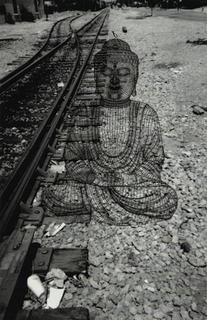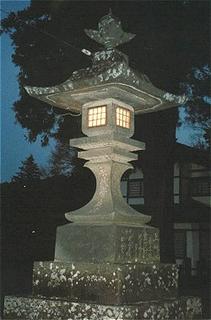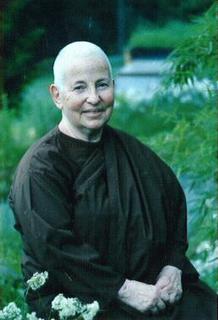 BLACK ON BLACK ON BUDDHISM: INTERVIEW WITH GEORGE MUMFORD
BLACK ON BLACK ON BUDDHISM: INTERVIEW WITH GEORGE MUMFORD
By William Poy Lee for
Spirit Rock Meditation CenterThe Dharma is spreading to the inner city—and given Spirit Rock’s location in one of the most racially diverse metro-areas of America, we are beginning to play a role in that. But who are our Dharma guides and our Dharma teachers who can help us navigate through one of the most painful and defensive non-dialogues in America, our joint legacy of historic racism?
This is the first in a series of interviews featuring people of color. The first three interviews are with Black Buddhist practitioners for whom the Dharma has been central in transforming their lives and empowering them as Black men in the often difficult interracial environment of America. Their lessons can provide insights as we at Spirit Rock start to explore this sharing of the Dharma into the inner city.
All three men are united by their love of the Dharma, its centrality in their chosen profession, and a desire to bring the transforming power of the Dharma to African American communities.
They note that there is special dukkha unique to African Americans. The statistics seem to support that this is not just a victim stance, but an objective conclusion. We are familiar with many of these statistics1 to the point of numbness. It starts with childhood:
· 58.9% of Black families are headed up by women in contrast with 17.9% of White families.
· African American kids are twice as likely to be assigned to the most ineffective teachers.·
· Black men are more likely than white men to go to prison than to college
· 71% of prisoners in California prisons and 81% of incarcerated youth are people of color, predominately men.
· 70% of California’s "3-strikes" sentences are middle-age African American men and mostly for non-violent crimes, like drug addiction or petty economic theft.
Perhaps another way to answer the proposition whether Black men suffer a unique Dukkha is to ask "Which one among us who is not Black would choose to become a Black man in America today?"
Introducing George Mumford
The L.A. Lakers basketball team won the 2000 and 2001 NBA Championships under the leadership of Head Coach Phil Jackson. One of Phil Jackson’s secret weapons is George Mumford, who coached the Lakers (and the Chicago Bulls) on the Inner Game. George is a Vipassana teacher, former Board member of Spirit Rock and IMS, and sports psychologist who teaches retreats nationally.
One of the most thrilling sights was the Lakers moving down court as a single organism. Shaq and Kobe’s Superstar egos had simply disappeared. He got ‘natta! For many young African-American males, basketball represents freedom of movement, mastery and money. Yet, it is the Game of Life that most Black men get to play. In this interview, George talks about how mindfulness practice liberated him from drug addiction and the difference the Dharma can make if properly introduced into inner city African-American communities.
How did you come into Buddhism?
I was in suffering and recovering from addiction. I had chronic pain but couldn’t use pain medication because that could play into addiction. Dr. Joan Borysenko, specialist in mind-body response, suggested meditation as an alternative and referred me to an IMS retreat. I read every book on their syllabus of Buddhist books. It took all my energy o purge the drugs and alcohol. My life depended upon meditation practice, residential retreats, Buddhist readings and teachers. That was the first time I felt I had a sense of control in my life.
How could Dharma practice make a difference in inner-city lives?
I think the main benefit to African Americans from meditation is impulse control. The inner city is a pressure cooker, full of tension and anxiety. It’s easy to go off or to reach for something to ease the pain. Meditation helps people understand the operation of their mind and emotions. It teaches us how to detach ourselves from outside provocation and from our habitual patterns of reaction.
Are there practices that are "unattractive" at first blush, to African Americans?
Facing your own dukkha. But that’s probably true for everyone. Folks will keep coming until the dukkha is too strong. Then they leave. The thinking is "If I don’t come, I won’t feel it." It takes awhile to appreciate the insight that the only way out of dukkha is through.
As a sports psychologist who works with sports teams, I often find I want the players to get it more than the players do. But that’s the boundary, they have to want it more than you or anyone else. You just keep the doors open and make the teachings available.
Many Buddhists of Color have stayed away from mainline centers like Spirit Rock or IMS or visit once, never to return. What are the reasons for this?
Part of the reason are teachers. Teachers get use to teaching the same type of folks for years all over the country. Many get comfortable with their pattern, because teachers are still people after all. Teachers are revered and placed on a kind of pedestal. It’s easy for us to inattentively become unavailable.
Suddenly, there are yogis of color, but we don’t adapt our teaching style, our examples or our words. So, we lose them. It starts to seem like Buddhism is for college educated white folks only.
What can we at Spirit Rock do, as sangha members, teachers, staff and Board members to change this?
Pay attention. Be mindful. Communicate.
Take Joseph Goldstein, for example. He’s been teaching People of Color retreats at Vallecitos, New Mexico for years. Yogis of color don’t know who he is and he’s not revered as he usually is by white yogis. Joseph gets questioned at those retreats. He gets confronted. But Joseph sticks with it, listens and comes back. Why? Because Joseph is sensitizing himself. He’s raising his ability as a teacher, to spread the dharma to new audiences.
In other words, Joseph is being a Buddhist. He’s being in the moment, as it is. He’s being sensitive, making adjustments. He’s dropping parameters and getting out of his comfort zones. He’s willing to go into the fire. Jack Kornfield is another teacher like that.
Anyone can learn about African Americans and other communities of color. You can read books and attend plays about people of color. You can volunteer in an inner city center. For teachers, you can find or create opportunities to co-teach before different audiences. Prepare yourself as much as you can.
Many Buddhists of color have family who are drug addicted, in jail or otherwise on the margins. How do we deal more effectively with our survivor’s guilt?
Yeah, that’s a hard one, because you care and you can’t figure out why you’re making it and they’re not, even though you’re from the same place. You’re isolated. You emotionally swing one of two ways: "You don’t deserve what you have" or "You’re all that, but you have to fix it all." Yeah, there are core issues of feeling personal responsibility for everyone.
We have to cultivate non-attachment. Notice I didn’t say detachment, but non-attachment, because you are connected. They’re family. The first step is to clearly face your own helplessness. Control is an illusion. Come to accept that you have no control over their behavior or the consequences, as hard as that is to do. We want it for them more than they do.
Create an environment in which they can succeed—once they have had enough of the Dukkha. An inner-city Dharma Center creates an environment, a physical place of refuge and resources. But I mean an attitude of staying open to them, letting them know you may not like certain behaviors and may even get disappointed. But stay available and share the dharma and the practices when they’re ready to hear it.
Drug addiction especially is a tough one. Slipping back into using is such a big part of recovery. But for those of us who have used meditation as a way out of addiction, it works. Meditation takes us to the place of pain, the underlying dukkha that leads us to addictions. Then, it helps us to heal, become free and lead new lives.
You can tell them about me. Tell them my story.
There is planning of an independent Dharma Center in the East Bay, which may have a limited affiliation with Spirit Rock. Oakland, California is the likely location, with a large population of African Americans. What would motivate African Americans to come to the Dharma?
Dukkha. Dukkha will motivate African Americans to come through the doors, when you’re through the denial of dukkha in your life.
Accessibility. Make sure the center is easy to get to . . . and to go home from. People would see it as a resource, a quiet refuge and a place to get in touch with themselves. Eventually, they may be able to see the strong positive impact on their lives.
A lot of folks’ initial motivation is to get an edge—to beat the pain and the stress like myself, or to go pro. But this experience can open the door into a deeper practice. The best pathway for an inner-city Dharma Center is to set the table and invite all to come and sup with us. Keep it simple and make the teachings available.






























